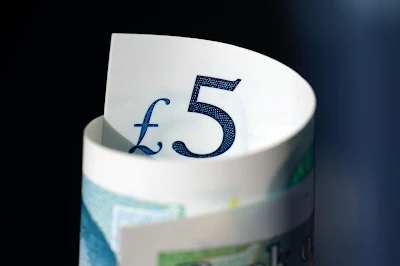Introduction
During the latter half of 2022, amid global economic pressure as a result of post-covid inflationary pressure exasperated by the mounting pressure from the Russia-Ukraine conflict, the UK faced severe crisis like situation with their currency, the British Pound (£) falling to its lowest ever level against the US Dollar ($). This crisis was a combined result of various unsuitable and improperly planned policies implemented by the government under the guise of controlling inflation and providing economic security to the citizens. Let's take a look on how the UK economy fell to such a state.
Russia-Ukraine War
The countries of Russia and Ukraine have been embroiled in conflict since 2014. On 24th February 2022, Russia escalated the long ongoing conflict with a full scale invasion of Ukraine. This move by Russia, warranted international condemnation as well as intensive economic sanctions from most western nations, like UK, USA, Germany, etc. These economic sanctions were aimed at crippling the finances of Russia in order to bring an end to the war. One of the major moves of these sanctions was to limit oil imports from Russia both in terms of quantity and price. The nations decided to slowly scale back on oil imports from Russia as well as limit the import price to $60 per barrel. This was supposed to limit Russia's income as the country depends heavily on oil and gas exports, being one of the largest producers of oil (14% of total global production). In order to counter this move by the western nations, Russia completely stopped all oil and gas exports to the nations that had agreed to these sanctions. This had severe impact on the economies of the western european countries. With winter approaching and supply of oil and gas being completely cut off suddenly, prices shot up leading to massive inflationary pressure on the economy.
Power Crisis
With the Russia-Ukraine war in full swing, the European and other nations like the USA, Australia, Japan, etc. imposed various economic sanctions in order to limit the finances of Russia. In order to counter this move, Russia cut off its oil and gas supplies to the European nations in order to put them in a pinch. This cut off in the supply of gas and oil had a severe impact on the UK economy. With winter at the door, demand for power started to rise and the lack of supply led to severe rise in power prices, leading to inflationary pressure in the economy. As a result of the lack of supply, the prices for power have nearly doubled in the UK even with government support. This has put immense pressure on households, especially those on the lower strata of the economy.
Severe Inflation
As a result of the shortage of gas and oil, compounded with the inflationary pressure from the Covid pandemic, the UK economy has been suffering from record inflation. The CPIH (Consumer Prices Index including owner occupiers' housing costs) Annual Rate has peaked to an all time high at about 9.3%, and at the same time the CPI is also creating peaks at 10.7% (as of Nov 2022).. This inflationary pressure is being felt all over the economy and is impacting the lower classes the most.
 |
| Source: Office of National Statistics, UK |
The Mini Budget
The mini budget, dubbed as "The Growth Plan", introduced by Lizz Truss's government, was intended to boost economic growth through tax cuts, and the lost revenue was to be covered with the help of public debt. However, the market reacted quite harshly to this move, to say the least. With inflation already plaguing the economy, further tax cuts were expected to create increased inflationary pressure in the economy. This created an atmosphere of fear in the market, and investors started loosing confidence in the economy. This ultimately led to the value of bonds as well as the British Pound dropping rapidly, which further created a domino effect in the economy.
The following charts show the fall in the gilt prices and British Pound.

Comments
Post a Comment